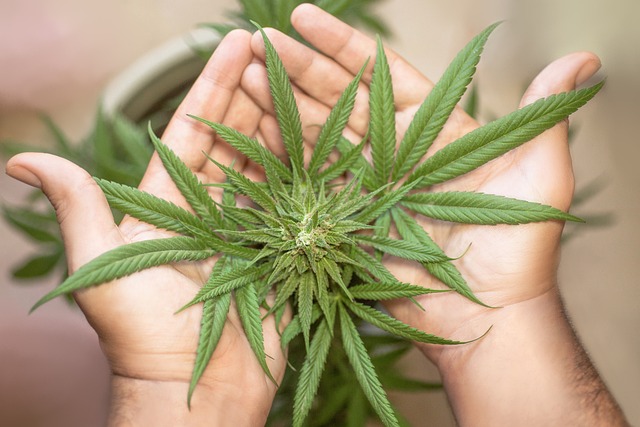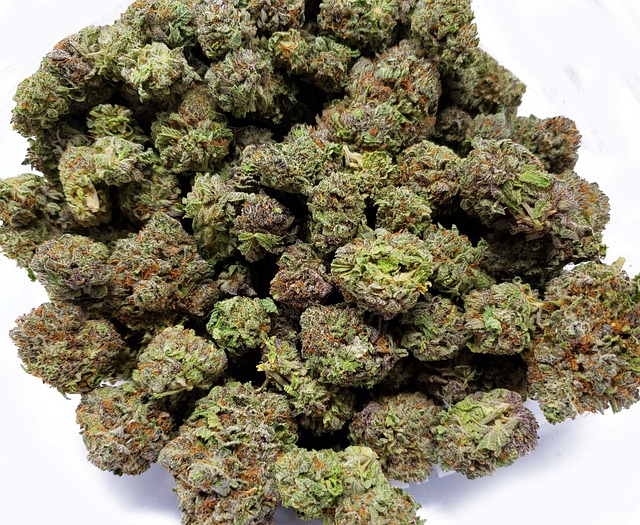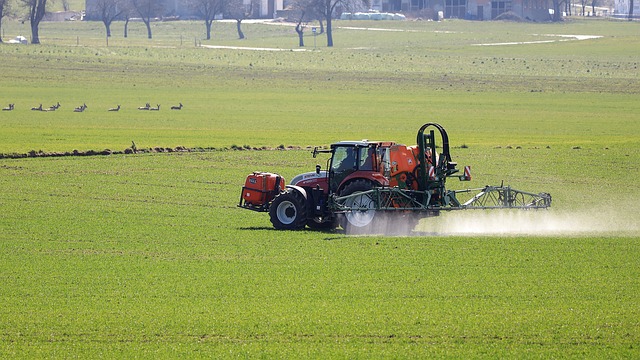Mississippi has legally recognized THCA (Tetrahydrocannabinolic Acid), a non-psychoactive cannabinoid found in the Cannabis sativa plant, with specific regulations allowing its presence up to 0.3% of delta-9 THC on a dry weight basis. The state's medical marijuana program supports the use of THCA-rich products for patients with approved conditions, highlighting its therapeutic potential without psychoactive effects. THCA, which is found in raw or protected cannabis plants, has been studied for its anti-inflammatory, pain-relieving, and neuroprotective properties. The Mississippi Medical Marijuana Act facilitates access to these products, with ongoing research evaluating their full medical potential. It's important for consumers to purchase THCA flower from state-licensed dispensaries to ensure compliance with the law. As the legal landscape evolves, staying informed about changes in regulations regarding THCA in Mississippi is crucial for maintaining legality and safety in its use.
Exploring the intricacies of THCA flower, this article delves into its burgeoning role within legal frameworks, particularly in Mississippi. As ‘THCA legal in Mississippi’ becomes a topic of increasing interest, we unravel the science behind its benefits and effects, offering insights into how it stands out from other cannabinoids. From the cultivation processes to responsible consumption, this piece aims to provide a comprehensive overview of engaging with THCA flower legally within the state’s evolving landscape. Join us as we navigate the nuances of this non-psychoactive compound and its implications for wellness enthusiasts and legal observers alike.
- Exploring THCA Flower's Legal Status and Usage in Mississippi
- The Science Behind THCA Flower: Benefits and Effects
- Cultivating and Consuming THCA Flower Legally in Mississippi
Exploring THCA Flower's Legal Status and Usage in Mississippi

The legal status of THCA flower, a non-psychoactive cannabinoid found in the Cannabis sativa plant, has been a topic of interest and debate in Mississippi. As of recent legislation updates, Mississippi has established clear guidelines regarding the use and possession of THCA flower. Under state law, products containing THCA are legal as long as they meet specific criteria, including a delta-9 tetrahydrocannabinol (THC) concentration of 0.3% or less on a dry weight basis. This distinction is significant because THCA, the raw form of THC found in raw cannabis plants, does not possess psychoactive properties and is often used for its potential health benefits without the “high” associated with its decarboxylated form, THC.
Mississippi’s approach to THCA flower reflects a broader trend towards more progressive cannabis laws across the United States. In Mississippi specifically, the medical marijuana program allows patients with qualifying conditions to access THCA-rich products from state-licensed dispensaries. Patients are utilizing THCA flower for its reported therapeutic effects, including pain relief and anti-inflammatory properties, without the psychoactive effects associated with high-THC cannabis products. As the legal landscape evolves, it is clear that THCA’s potential benefits are gaining recognition, leading to increased interest in the compound’s legal status and usage across the state. Users in Mississippi interested in exploring THCA flower must stay informed about the regulatory changes and ensure compliance with local, state, and federal laws.
The Science Behind THCA Flower: Benefits and Effects

Cannabidiolic acid (CBDa), the precursor to CBD, has garnered attention for its potential health benefits, but Tetrahydrocannabinolic Acid (THCA) is equally noteworthy. THCA is the non-psychoactive form of THC found in raw cannabis plants or cannabis flowers that have been preserved without being exposed to heat or light, which converts THCA into THC. The science behind THCA’s effects and potential benefits is rooted in its interaction with the body’s endocannabinoid system, a complex cell-signaling system identified in the 1990s that helps regulate a host of physiological and cognitive processes. Research suggests that THCA may offer anti-inflammatory, analgesic, and neuroprotective properties, making it a subject of interest for therapeutic applications. In Mississippi, where laws have evolved to allow certain forms of cannabis with THC content under 0.5%, THCA-rich hemp products are becoming increasingly accessible to those seeking the potential benefits without the psychoactive effects associated with THC. As such, the scientific community and consumers alike are exploring the therapeutic potential of THCA, with studies ongoing to further elucidate its effects and mechanisms of action.
Cultivating and Consuming THCA Flower Legally in Mississippi

In recent years, the legal landscape concerning cannabis derivatives has evolved significantly in Mississippi. One such development is the emergence of THCA (Tetrahydrocannabinolic Acid) flower, a non-psychoactive precursor to THC found in raw cannabis plants. As of the current state of legislation, cultivating and consuming THCA flower is legally permissible under certain conditions within the state. Mississippi’s laws allow for the possession and consumption of cannabidiol (CBD) and products containing less than 0.3% THC on a dry weight basis, which encompasses THCA flower if it meets this threshold. Patients with qualifying medical conditions can legally possess and use THCA flower as part of their treatment regimen, as per the state’s Medical Marijuana Act passed in November 2020. This legislation paves the way for a structured medical cannabis program to be implemented, which will oversee the cultivation, processing, and sale of cannabis products, including THCA flower, for medicinal purposes.
For those interested in cultivating THCA flower legally in Mississippi, it is crucial to adhere to the guidelines set forth by the state’s Department of Health or the Mississippi Medical Cannabis Cultivation Commission once the program is fully operational. Growers must obtain licenses and follow stringent regulations regarding plant cultivation, harvesting, and testing to ensure compliance with the state’s legal THC limits. Consumers, on the other hand, are expected to purchase their THCA flower from licensed dispensaries to guarantee its legality and safety. As of now, the cultivation of cannabis for any purpose remains restricted to those authorized under the medical marijuana program or licensed hemp growers following the Farm Bill guidelines. It is a dynamic area of law, and interested parties should stay informed about the evolving regulations to ensure they remain within legal boundaries when engaging with THCA flower in Mississippi.
In recent discourse, the emergence of THCA flower as a subject of interest within the realm of cannabis derivatives has garnered significant attention. This article has shed light on the complex and evolving legal landscape of THCA flower use in Mississippi, particularly highlighting its legal status and approved applications. We’ve delved into the scientific aspects that underscore the potential health benefits and psychoactive effects associated with THCA, offering readers a comprehensive understanding of this novel compound. Moreover, we’ve provided guidance on how enthusiasts can legally cultivate and consume THCA flower within the state’s regulations. As THCA continues to carve its niche in the cannabis industry, especially under the scrutiny of Mississippi’s legislative framework, it is clear that this non-psychoactive cannabinoid holds promise for various therapeutic applications. It remains a pivotal topic for future research and regulatory considerations within the state.
